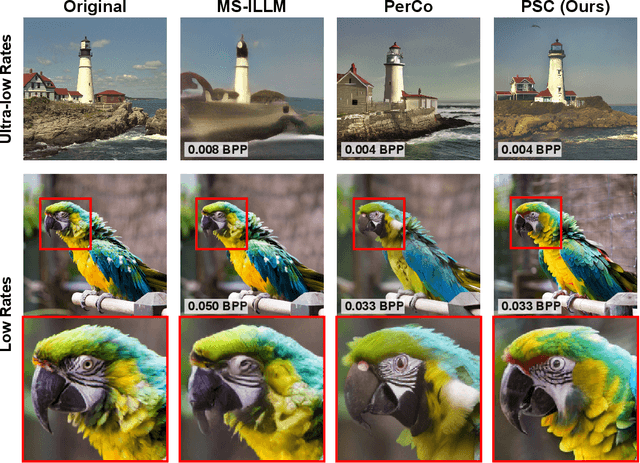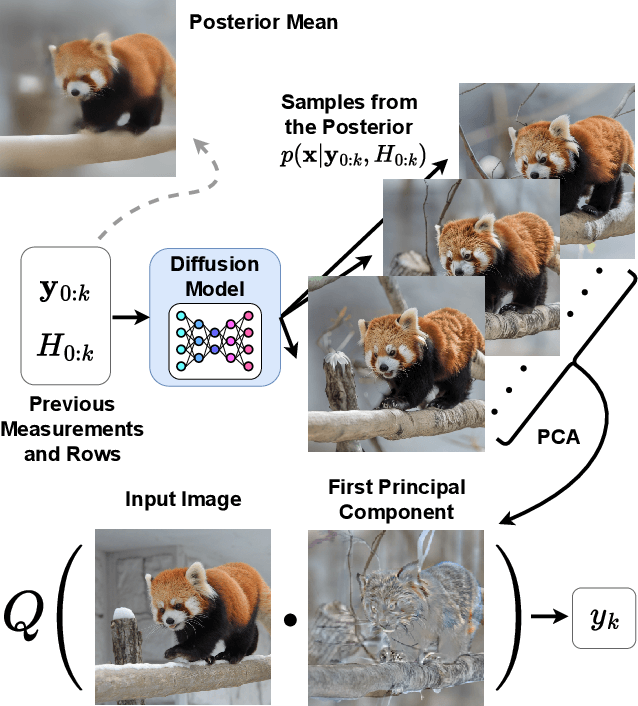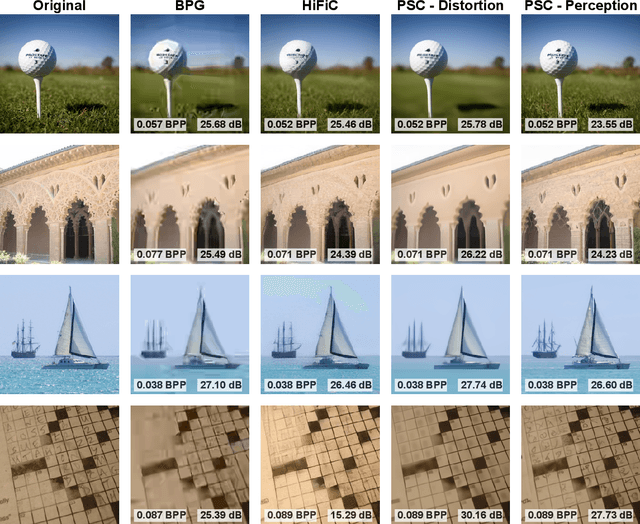Zero-Shot Image Compression with Diffusion-Based Posterior Sampling
Paper and Code
Jul 13, 2024



Diffusion models dominate the field of image generation, however they have yet to make major breakthroughs in the field of image compression. Indeed, while pre-trained diffusion models have been successfully adapted to a wide variety of downstream tasks, existing work in diffusion-based image compression require task specific model training, which can be both cumbersome and limiting. This work addresses this gap by harnessing the image prior learned by existing pre-trained diffusion models for solving the task of lossy image compression. This enables the use of the wide variety of publicly-available models, and avoids the need for training or fine-tuning. Our method, PSC (Posterior Sampling-based Compression), utilizes zero-shot diffusion-based posterior samplers. It does so through a novel sequential process inspired by the active acquisition technique "Adasense" to accumulate informative measurements of the image. This strategy minimizes uncertainty in the reconstructed image and allows for construction of an image-adaptive transform coordinated between both the encoder and decoder. PSC offers a progressive compression scheme that is both practical and simple to implement. Despite minimal tuning, and a simple quantization and entropy coding, PSC achieves competitive results compared to established methods, paving the way for further exploration of pre-trained diffusion models and posterior samplers for image compression.
 Add to Chrome
Add to Chrome Add to Firefox
Add to Firefox Add to Edge
Add to Edge